Copia Review
Pros: Some interesting battle features, artwork for environments is great
Cons: Poor animations, copied graphics from other games, gameplay is unoriginal and the story-arc is weak
Gameplay: 5
Graphics: 5
Performance: 8
Overall: 6
We took a look at Copia from R2Games, their newest browser based fantasy RPG that focuses on players building up a team of companions and battling through a story focused MMO whilst taking on challenging late game PVE encounters and facing off against other players in PVP. We checked out the game for a few hours to see just what we thought and to see where the game sat in comparison to many of its peers within the team building RPG genre.
First stepping into the game we got to choose our protagonist’s class, from four available options we had the Warrior, Mage, Archer and Destroyer; basically a machine meets magic dwarven construction that constantly made the sound of a Transformer changing into its robot form (we kid you not). Each class has a touch of fluff text accompanying them, but outside of that there was little in the way of explanation of how each one would be utilized in combat, what benefits each had, and given that with the standard “Formation” element of combat where players put their hero and companions into the formation, the fact that your protagonist could only go on the back line seemed to make your class choice even more redundant.
In game and it was a little disappointing, some crawl text and artwork gave us the gist of the story-arc, basically demons attacking the world… again, and by again we don’t mean in terms of the story and that they are re-emerging (which they were), but more that we’re sick of seeing “the demon hordes” story-arc coming from R2 Games’ titles like there’s no other possible antagonist. Graphically the game looks dated, a step behind even some of Copia’s earlier released rivals, the animations were clunky, and some of the larger Boss models in combat just did not even look like the same art style. A mish-mash of graphics, some poor sound effects and a paper thin storyline wasn’t quite what we’d hoped for, but unfortunately everything we’d expected.
Combat, for the most part, is a series of instanced stages through a specific region map, which FYI completely had the style and art assets ripped off from World of Warcraft’s region maps (particularly the hill and tree icons as well as the nameplate banner for the region). Entering combat and we’d have a few moments to change around our battle formation if we wished, the 3x3 grid where we’d placed our hero and up to five companions, even with the option of switching out some companions for those we had in reserves. Whilst the actual formation system was weak (Warriors could only be on the front row, all other classes on the middle, protagonist on the back) and our options for where to place companions was limited, this was made up for in part by the number of companions we’d managed to acquire quite early in the game.
With the battle started our hero and companions would jump into automated combat and from here we had no involvement in the battle other than to watch blow after blow until the enemy leader was killed (once killed you instantly destroy all the other minions) or until our own protagonist was killed. This, at least, meant battles didn’t go on until every enemy was killed and so were a lot quicker, however they were automated and boring to be part of. One of the other main features of combat was our elemental spells courtesy of the little fairy we had joining our group, four elemental spells that had different effects that were also used automatically once they charged up (as well as a Summon spell to summon a huge beast to help in the battle, this spell being charged by using the elemental spells).
Combat was weak, it was like most other RPGs, but it did have a handful of redeeming features. Firstly, each instance was a series of battles and between each wave we could change around our companions again or even heal them, allowing us a little more management of the team. Another thing we liked was that when it came to fighting the actual Boss enemies at the end of a region, we had to fight this boss manually with no automation of our spells and summoning, which at least for once felt like we had some control over the battle (even if it was nothing more than just clicking the spells the moment they were charged up, but further down the line we imagine there’s more tactics to choosing when to use a spell).
One of the biggest features of combat is the Elements system, where all enemies and companions are assigned to an element; Water, Fire, Wind or Earth, with each one being more powerful than another in combat: Water > Fire, Fire > Wind, Wind > Earth and Earth > Water, meaning that there was no single dominant element but did mean we could be active about switching in our best companions and switching out our weakest depending on the enemy we were going to face.
When we finally unlocked PVP we have to say it was a bit of a disappointment; another fully automated system that was little more than choose which opponent you want to fight against, click battle and then waiting to see if you win or lose. Even with our team fully levelled up, challenging players within our rank and Combat power range, we were getting destroyed each time we tried (which wasn’t that often as the Arena goes onto cooldown which can then only be accessed again by spending Diamonds premium currency).
In all honesty there wasn’t much in the way of innovation with Copia, outside of the elements system (which we have seen other variations of in other games) and there was just a lot more of the same thing we’ve come to expect from R2 Games. The levelling and upgrading systems are tired, grindy click fests, the story is shallow and debatably pointless, and the graphics are nothing to write home about. As a stand-alone game then there’s plenty of players that will find it enjoyable, but in the browser RPG genre it is just lost in a sea of equally mediocre titles that all feel the same.
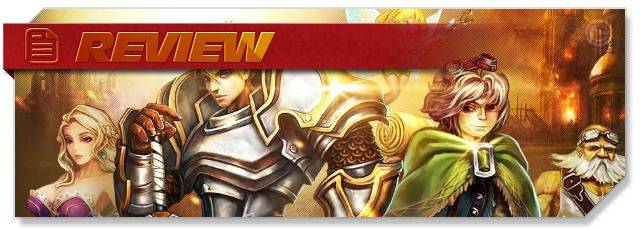
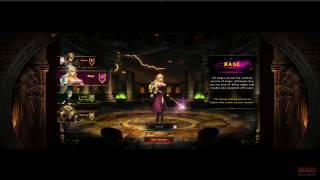
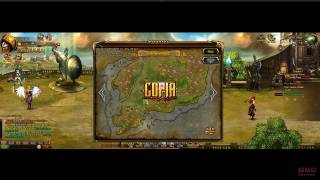
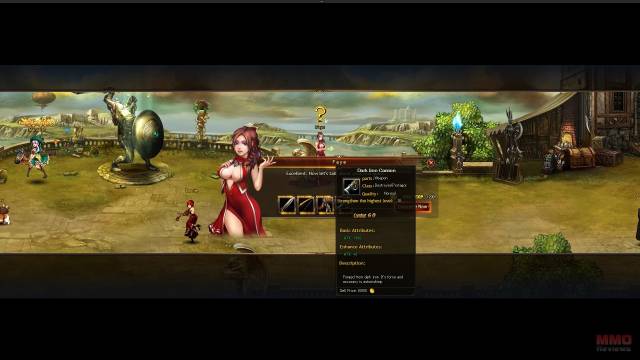
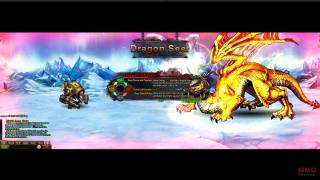
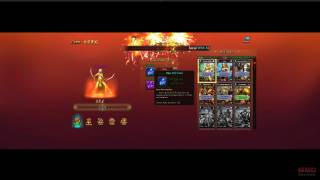
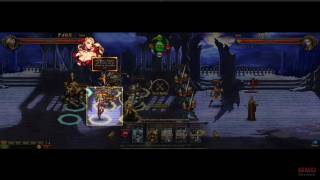

Deja tu comentario
You must be logged in to post a comment.